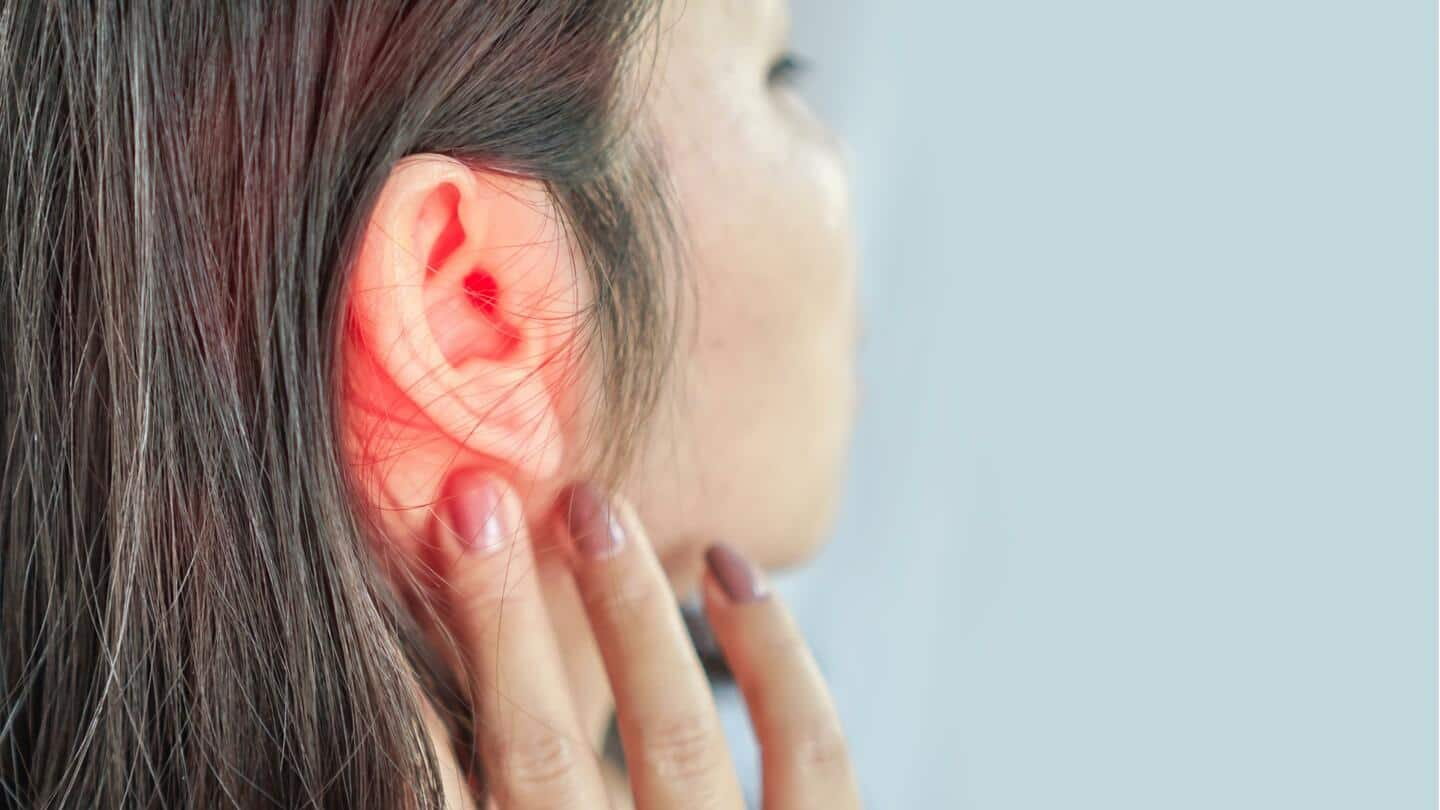
All about tinnitus: Causes, symptoms, prevention and more
What's the story
Tinnitus is a common ear-related disorder that causes a ringing or buzzing noise in one or both ears. Often associated with hearing loss, the sound can come and go or occur constantly.
Affecting about 15-20% of people worldwide, it is usually caused due to an underlying condition like an ear injury or age-related hearing loss.
Read on to know more about the disease.
Context
Here's what our expert says
Tinnitus is the annoying symptom of hearing a sound in the ear when there is no external stimulus.
It can be an objective tinnitus which is a clicking sound that can be heard by others, or a subjective tinnitus which is heard by the sufferer alone.
Tinnitus is only a symptom and not a disease. Diagnosis of the underlying cause must be attempted.
Information
What is tinnitus?
Tinnitus is an ear disease that causes one to hear ringing, clicking, roaring, and whistling sounds that no one else can hear. The sounds can be soft or loud enough to affect one's daily activities causing sleeping difficulties, frustration, and depression.
Cause
What causes tinnitus?
Tinnitus can be caused due to hearing loss, ear infection, or ear canal blockage that can occur due to a buildup of fluid, earwax, dirt, or other foreign materials.
Head or neck injuries and medications like cancer drugs, antidepressants, and anti-inflammatory drugs can also worsen the condition.
Blood vessel disorders, ear bone changes, and other chronic conditions can also lead to tinnitus.
Symptoms
Know about the symptoms
The first signs of tinnitus include ringing or buzzing noises in your ears. You can also experience other phantom noises like roaring, hissing, humming, or clicking.
The noises involved in the disorder usually vary in pitch from a low roar to a high squeal.
The sound can get loud in certain cases and make it difficult for you to hear external sounds or concentrate.
Risk factors
Factors that can increase the risk of developing tinnitus
Tinnitus usually affects older adults since the number of functioning nerve fibers in your ears declines as you age which leads to hearing loss, thereby triggering the condition.
Loud noises coming from heavy equipment, firearms, and chainsaws as well as portable music devices can also cause hearing loss which triggers tinnitus.
Tobacco, alcohol use, obesity, high blood pressure, and cardiovascular problems also cause tinnitus.
Treatment
How is the disorder detected?
First, your healthcare provider will conduct a physical examination to detect any ear problems and go through your medical history.
They usually conduct a hearing test called audiometry to check your ability to hear various tone ranges.
Next, they check your eardrum using a tympanometer followed by conducting magnetic resonance imaging. This will help in detecting the disorder and then suggesting the required medications.
Prevention
How to prevent the disease?
Try protecting your hearing and avoid exposure to loud sounds to prevent tinnitus. Use ear protection if you cannot avoid loud sounds.
Try using earplugs at concerts and movie theaters. Keep the volume low while listening to music on headphones.
Exercise regularly, and eat a healthy diet to take care of your cardiovascular health.
Limit your alcohol, nicotine, and caffeine intake to prevent tinnitus.